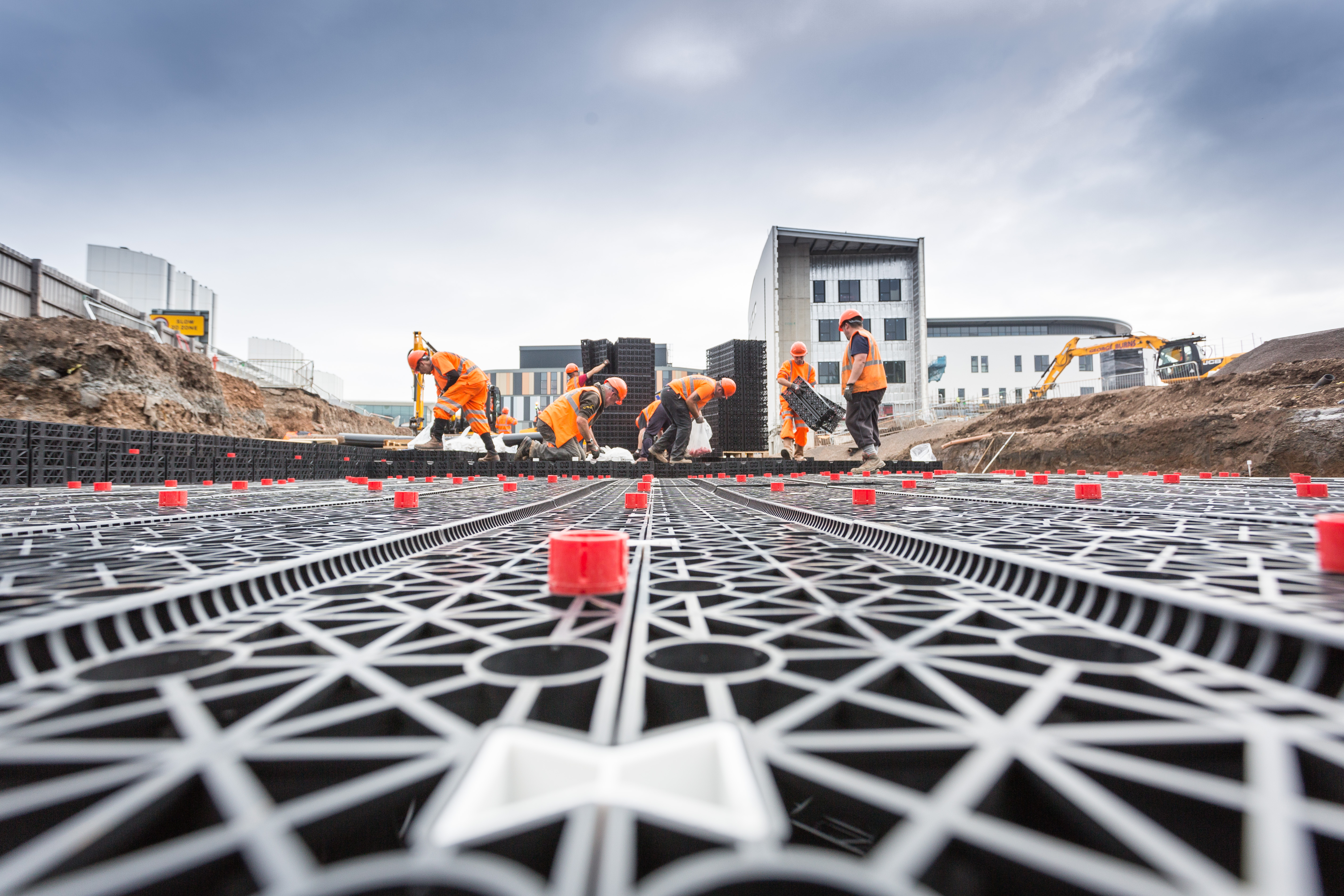Polypipe has supplied more than 300,000 Permavoid and Polystorm-R components for water attenuation systems at the new £150m Royal Hospital for Children and Young People in Edinburgh.
The hospital complex at Little France is set to provide the Royal Hospital for Sick Children, department of clinical neurosciences, and child and adolescent mental health services with a purpose-built facility that consolidates three key departments onto one central site in the city.
Polypipe, working with primary contractor, Multiplex, has supplied 11 shallow attenuation tanks that will hold a combined volume of up to 2020m3 installed at key points across the site.
The tanks have been installed under parking bays and beneath crucial entrances, including the hospital’s Accident and Emergency departments by civil engineer and groundwork specialist, Crummock.
An intelligent sub-base replacement design was needed to store the appropriate level of water above the high water table that gathers on the site during heavy rainfall.
Following discussions with Polypipe’s technical team, the Permavoid geocellular system was chosen as the primary engineered solution.
In addition, Polypipe supplied the additional attenuation tank using components from its Polystorm Range, which included Polystorm R, Polystorm Inspect and Polystorm Access.
The Permavoid tanks are being used beneath permeable and non-permeable paving, wrapped in geomembrane to make the tanks watertight for attenuation.
Permatex, the polypropylene geotextile, has been installed between the Permavoid layers to ensure passive water infiltration into the tanks.
The innate strength of Polypipe geocellular solutions makes them ideal for heavily trafficked areas, and the 95% void fill ratio of the Permavoid system enhances ground attenuation by storing excess water below ground level, mitigating the risk of localised flooding.
Demonstrating how the breadth of Polypipe’s range can provide a solution for any challenge, 10 of the tanks installed used Permavoid 150mm to hold a volume of up to 1780m3, with one tank using a combination of Polystorm-R with Polystorm Access, and Polystorm Inspect, supplying a further 240m3 volume tank.
With adjoining hospital departments needing to remain open and accessible during construction, a carefully co-ordinated delivery schedule for the products on site needed to be devised between Polypipe; the selected merchant, PDM; and the onsite project managers to minimise disruption to patients and medical staff.
Jonathon Mays, procurement manager at Multiplex, said: “Polypipe was a clear choice for this project as its technical experts were able to assess on-site requirements and define the right products and quantities needed.
“Using a geocellular system also reduced the amount of land that needed to be excavated from the site.”
Rosie Cheetham, marketing manager at Polypipe Civils, added: “There were a number of interesting challenges on this project, including the contractor’s need to keep the site open to hospital traffic and the high water table on site posing a technical problem to solve.
“The onsite teams were able to co-ordinate deliveries to meet strict installation schedules – ensuring disruption on site was kept to a minimum, and the geocellular tanks, positioned above the high water table, provide a high tensile strength and flexibility that will be able to endure all levels of traffic for years to come.”
The Royal Hospital for Children and Young People is set to welcome its first patients later this year.





